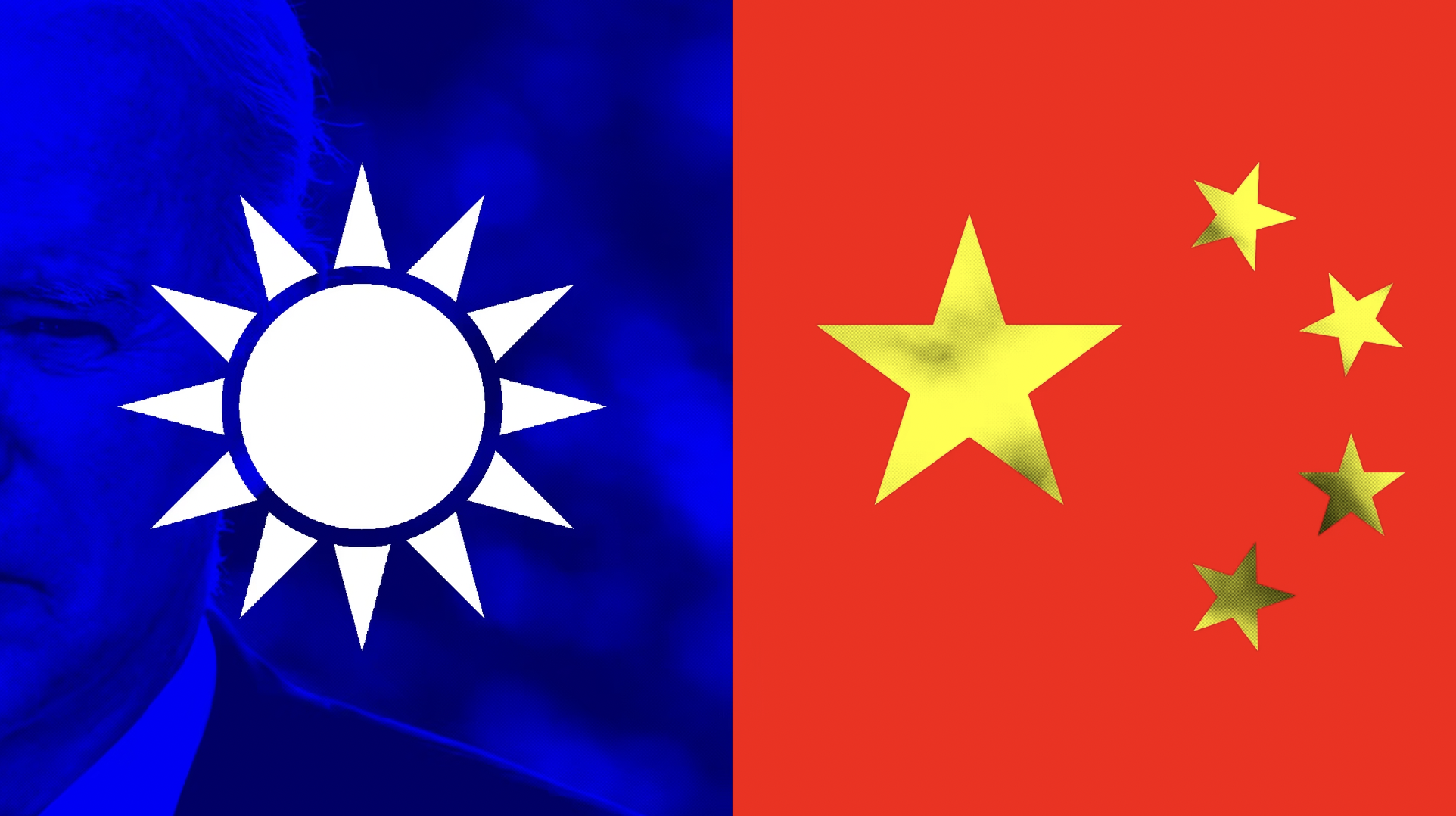
Peter Zeihan: What Would a Conflict in Taiwan Look Like?
Let’s discuss what China’s potential invasion of Taiwan would look like. Should China attack, both Biden and Trump have been explicit that the US would…
Thought Leader: Peter Zeihan

“White House Walks Back Biden Taiwan Defense Claim for Third Time in Nine Months” was the patronizing headline the New York Post applied to its report on President Joe Biden’s Taiwan comments at a regional summit in Tokyo. The story line was preset: semi-senile president blurts unscripted comment, is corrected by his staff minders.
But if you reread Biden’s repeated comments on Taiwan, you see a policy that is clear, considered, and consistent.
In August 2021, ABC’s George Stephanopoulos asked Biden whether withdrawal from Afghanistan might embolden China against Taiwan. Biden replied:
There’s a fundamental difference between—between Taiwan, South Korea, NATO. We are in a situation where they are in—entities we’ve made agreements with based on not a civil war they’re having on that island or in South Korea, but on an agreement where they have a unity government that, in fact, is trying to keep bad guys from doin’ bad things to them.
We have made—kept every commitment. We made a sacred commitment to Article Five that if in fact anyone were to invade or take action against our NATO allies, we would respond. Same with Japan, same with South Korea, same with—Taiwan. It’s not even comparable to talk about that.
In October, Biden restated his commitment even more forcefully and clearly, this time at a CNN town hall moderated by Anderson Cooper. An audience member asked, “China just tested a hypersonic missile. What will you do to keep up with them militarily? And can you vow to protect Taiwan?”
Biden answered:
Yes and yes. We are—militarily, China, Russia, and the rest of the world knows we have the most powerful military in the history of the world. Don’t worry about whether we’re going to—they’re going to be more powerful. What you do have to worry about is whether or not they’re going to engage in activities that will put them in a position where there—they may make a serious mistake.
And so, I have had—I have spoken and spent more time with Xi Jinping than any other world leader has. That’s why you have—you know, you hear people saying, “Biden wants to start a new Cold War with China.” I don’t want a Cold War with China. I just want to make China understand that we are not going to step back. We are not going to change any of our views.
Anderson Cooper then intervened to clarify: “So, are you saying that the United States would come to Taiwan’s defense if—”
Biden: Yes.
Cooper: China attacked?
Biden: Yes, we have a commitment to do that.
Now, in May 2022, Biden has repeated the pledge. At a news conference Monday in Tokyo, Nancy Cordes, of CBS News, asked, “You didn’t want to get involved in the Ukraine conflict militarily for obvious reasons. Are you willing to get involved militarily to defend Taiwan if it comes to that?” Biden answered, “Yes.”
Cordes followed up: “You are?” Biden answered: “That’s the commitment we made.”
Not only the Biden-skeptical New York Post but other media organizations, too, have treated these words as an unintended mess that he’d need to “untangle,” as the CBS anchor John Dickerson phrased it. But if there is a tangle, it’s not Biden’s fault.
U.S. policy toward Taiwan is often described as “strategic ambiguity,” usually understood as “The U.S. will defend Taiwan but won’t say so.” But behind this U.S. ambiguity has stood a prior Chinese ambiguity. China’s version of strategic ambiguity simultaneously:
In return for that ambiguous Chinese policy, Taiwan would refrain from challenging China’s sovereignty claims and the U.S. would refrain from any formal commitment to Taiwan’s security.
Under the rule of Xi Jinping, China has progressively reneged on the second half of its strategic ambiguity. China has ordered bigger and bigger incursions into Taiwan’s air-defense zone. China has the means to mount a naval blockade of the island. It has mounted sustained and aggressive cyberattacks. Throughout, Chinese leaders have growled explicit threats of armed force. Taiwanese officials describe the present situation as the most dangerous of the past 40 years.
So Biden is not leading this particular diplomatic two-step. Biden is not really initiating anything at all. As China jettisons its prior strategic ambiguity, so Biden has been pushed away from American strategic ambiguity. As Chinese threats of aggression have become more explicit, so, too, have U.S. promises of defense become more explicit.
Biden was also pushed and pulled by two other factors. Donald Trump, in his presidency, also walked away from “strategic ambiguity” over Taiwan—but, in his case, toward outright abandonment of Taiwan. “Taiwan is like two feet from China. We are eight thousand miles away. If they invade, there isn’t a fucking thing we can do about it.” Those words were uttered by Trump in private, according to a book by the Washington Post reporter Josh Rogin. But Biden had to worry that Trump communicated his feelings to Xi in their private conversations. If so, the credibility of the American commitment needed to be reaffirmed by Trump’s successor.
In another theater, the Russian invasion of Ukraine raised fresh questions about U.S. intentions. Ukraine was not a formal U.S. ally before the Russian invasion. The U.S. accordingly provided Ukraine with weapons and supplies to defend itself, but did not intervene directly. That careful delineation—no U.S. forces for non-ally Ukraine—had to raise questions within the Chinese leadership about whether the U.S. might follow a similar policy toward Taiwan, also not formally a U.S. ally. Biden may have felt it urgent to dispel any doubts on that score.
“Strategic ambiguity” was a policy initiated by President Jimmy Carter to assure China of respect while protecting Taiwan from invasion. It worked for a long time. But there was no guarantee that it would work forever. President Biden had good reason to worry that the four-decades-old policy was losing its effectiveness in the face of rising Chinese assertiveness. New times may call for new measures to keep the old peace.
For all portrayals of Biden as decrepit and doddering, it’s worth observing that he launched his new approach at an ingeniously propitious moment. For China, with its people restive under COVID lockdown, its economy slumping toward zero growth and possibly outright recession, its authoritarian partner in Moscow entrapped in a losing war, this is about as shaky a moment as any since Xi assumed power nearly a decade ago. Biden laid down his new rules at a moment of unusual vulnerability for China. By the time the Chinese have a better opportunity to act, the more explicit U.S. policy will have become a settled fact.
Biden’s aides are right, in a way, that he has not changed anything. As Biden said, the commitment was there before him. Now it’s just more visible than it used to be. His words in Tokyo were not a gaffe, not a blurt. They were a restatement of a message that needed to be heard, delivered at an opportune time.
Peter Zeihan: What Would a Conflict in Taiwan Look Like?
Let’s discuss what China’s potential invasion of Taiwan would look like. Should China attack, both Biden and Trump have been explicit that the US would…
Thought Leader: Peter Zeihan
Dr. Sanjay Gupta: Rethinking Health Rules We Grew Up With
“Drink your milk,” we are told as children. CNN Chief Medical Correspondent Dr. Sanjay Gupta examines our practice of continuing to drinking cow’s milk as…
Thought Leader: Sanjay Gupta
Erika Ayers Badan: Turning What Fuels You Into Business
Kerri Rosenthal is an artist, a businesswoman, a mom, not someone giving up her ambition (is that what we’re supposed to be doing at work…
Thought Leader: Erika Ayers Badan

